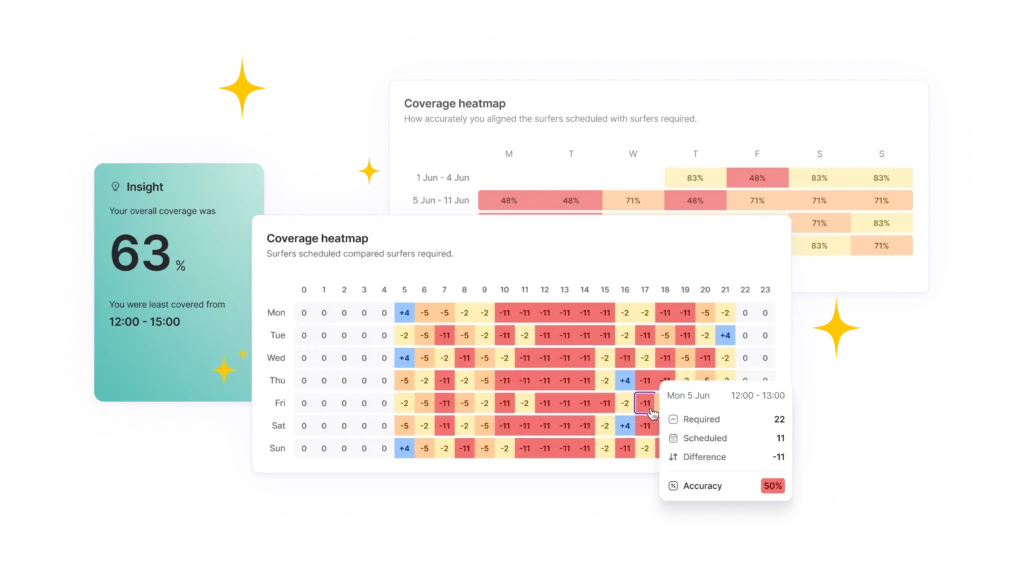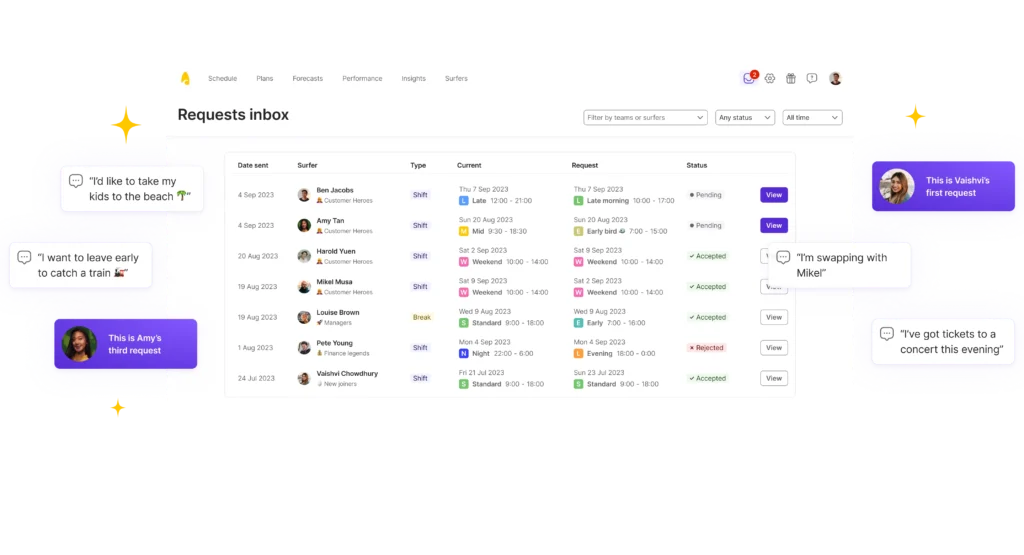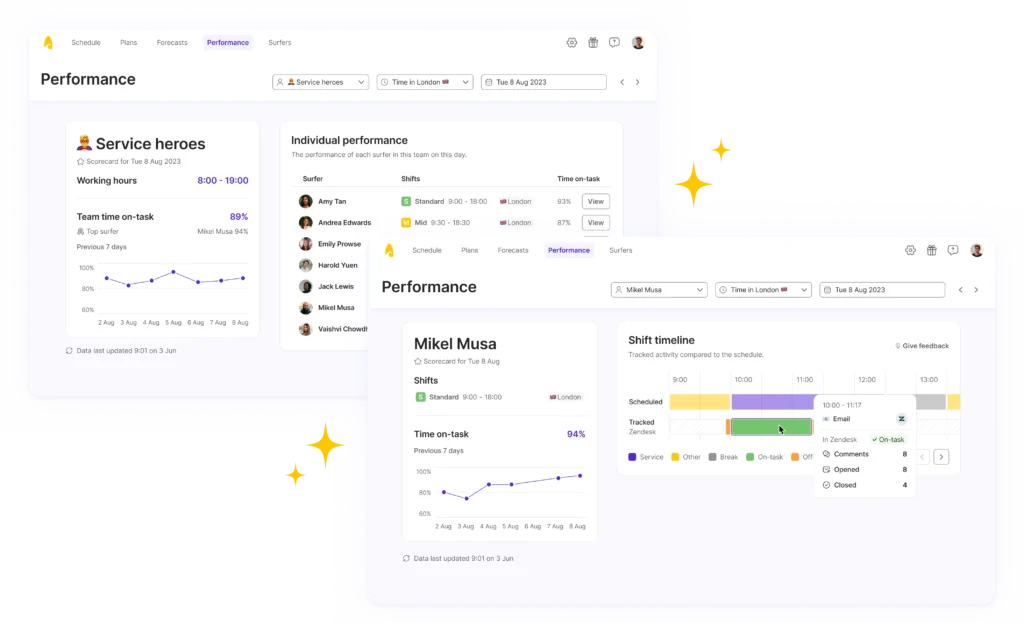
Healthtech support: Delivering efficient patient care with Surfboard

The traditional healthcare model is undergoing a significant transformation. No longer confined to the conventional settings of hospitals and clinics, healthcare delivery is evolving to embrace the digital age. Healthtech companies are emerging at the forefront of this change, offering innovative solutions that cater to the modern patient’s needs and expectations.
As healthcare providers diversify from traditional settings to healthtech companies, the importance of customer service (CS) in ensuring patient satisfaction and trust cannot be overstated.
With patients now having a plethora of options, customer support in healthcare has become more than just addressing concerns—it’s about providing timely, compassionate, and efficient care.
Common challenges in healthtech support
Constantly updated training for efficient triaging
Healthtech customer or patient support teams need to be well-versed in basic medical knowledge to determine the seriousness and nature of a patient’s condition. While they cannot provide treatment advice, their role is crucial in making correct triaging decisions, such as scheduling appointments with the appropriate clinical workforce or advising patients to seek urgent care.
This means that adequate time has to be spent on training – whether it’s new joiners or ongoing training for existing agents. Healthtech support teams are often split between generalist models, where agents are trained on all case topics; as well as specialist models where specific queries are routed to agents who are best equipped to answer them as a result of in-depth training.
When scheduling, it becomes a larger challenge to make sure the right people are available at the right time based on changes in peaks and troughs of inflow. Matching “demand” (patient contacts) with “supply” (availability of agents or specialists) ends up more nuanced when it ends up filtered based on specific types of queries.
Escalation and prioritisation
Beyond technical glitches, CS teams in healthtech often face situations where patients raise concerns about medical incidents or the quality of care they received. In such scenarios, it’s imperative to know who to escalate these concerns to internally.
Addressing these complaints requires a two-pronged approach: understanding the medical perspective and then addressing it from a consumer perspective.
With escalation, varying service level agreements (SLAs) and avoiding building up a backlog is critical. You need to ensure escalations, especially between Tier 2 and Tier 1 tickets happens with easy to avoid friction in the customer experience; and you need to make sure the right people are available to handle escalations. All this requires effective technology integrations and accurate and granular forecasting.
Instant responses and no room for service gaps
In healthcare, situations can escalate rapidly, especially given health conditions can deteriorate over the course of the interactions a patient has with a support team. This means urgency is crucial to delivering support.
Patient support teams must be prepared to make swift and sharp decisions in these critical moments, ensuring that patients receive the appropriate care or advice without delay. Any service gaps or delays can have paramount consequences on patient care.

With Surfboard’s intuitive capacity planning, managers can effortlessly identify areas of overstaffing or understaffing, ensuring SLAs are consistently met and minimising the risk of service gaps. Moreover, agents have the flexibility to request shift swaps with colleagues when unforeseen situations arise. This centralised view promotes teamwork, ensuring that service coverage remains uninterrupted and efficient.

Compassion and empathy
Dealing with patients means handling individuals who might be in distress, pain, or anxiety. When addressing patients with mental health concerns, it’s essential not to come across as cold or indifferent. However, this compassionate approach, while vital, might slow down the agent.
Surfboard’s time-on-task feature enhances transparency, allowing managers to quickly gauge team performance using data from integrated ticketing platforms. This not only tracks time but also offers insights into productivity. For example, a sudden drop in adherence from a typically efficient agent might be attributed to an influx of complex mental health cases rather than a decline in general performance.
Download our free eBook to learn more.

Holistic overview and structured approach
Healthtech customer support teams need a comprehensive understanding of the clinical environment. This includes knowing the available doctors and nurses, their qualifications, any physical backlogs if they’re addressing in-person patients, available support options for patients, records of repeated inquiries, and any special notes that might impact prescriptions or treatments.
Conclusion
Healthtech customer service teams face unique challenges, from ensuring swift and compassionate responses to navigating the complexities of patient care coordination. In such a fast-paced environment with manifold responsibilities, it’s essential to acquire a solution that values the human aspect as much as efficiency. A solution that not only brings compassion to your team but also aids them in working efficiently without wearing them down.
If you’re interested in exploring how Surfboard can be that solution, adeptly tackling and simplifying the daily scheduling and operational challenges your healthtech team encounters, book a demo today.



